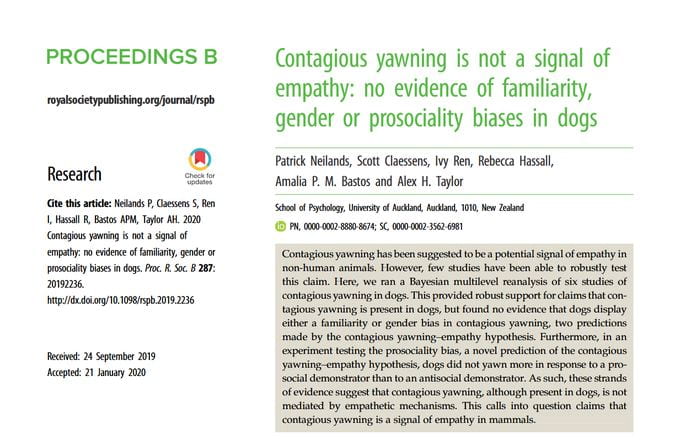Is contagious yawning a good measure of empathy? Our new study with dogs suggests not.
Ever find yourself yawning after seeing someone else yawn? Contagious yawning has long been used as evidence for empathy in mammals. Researchers have claimed that, just like empathy, contagious yawning involves matching your own state to another individual’s state.
But recently, the link between contagious yawning and empathy has come under scrutiny. In our study, we tested three predictions of the contagious yawning-empathy hypothesis:
(1) the familiarity bias
(2) the gender bias
(3) the prosociality bias
For the familiarity bias: since empathy increases for familiar others, so should contagiously yawn.
For the gender bias: since females tend to be more empathic than males, females should show more contagious yawning.
For the prosociality bias: since empathy increases for prosocial others, so should contagious yawning.
To test these predictions, we conducted a re-analysis of previous studies on contagious yawning in dogs (n = 257) and an independent experiment (n = 32). In our re-analysis, we found robust evidence for the contagious yawning phenomenon in dogs. Dogs yawned more often in response to a yawning demonstrator compared to a non-yawning control.

